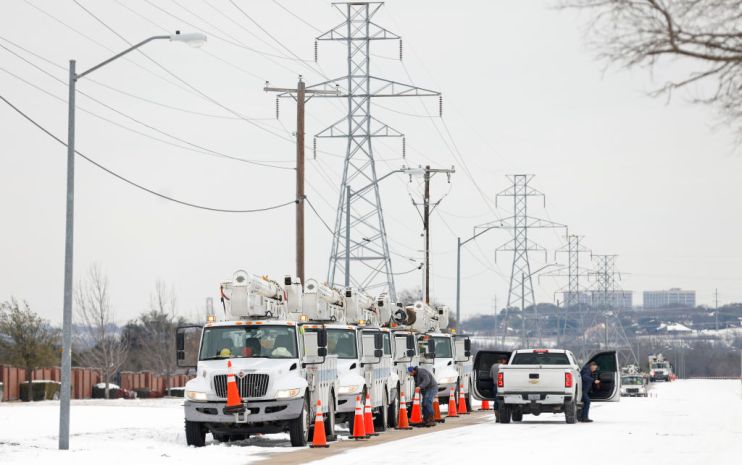Ice cold in Alice, Texas: What’s going on in the Lone Star state?

A devastating winter storm has been raging over the southern United States for the last five days, with much of the damage concentrated in Texas.
So far, 21 people have been killed by the deep freeze, with 2.7m people still without power after the state’s energy grid failed repeatedly.
The cold snap has sent the state’s energy sector into something of a spin, with electricity prices surging and oil production halted due to the arctic conditions.
Energy sector feels the freeze
Texas is the US’ energy heartland, producing more oil and natural gas than any other state.
It contains the huge Permian basin, one of the centres of shale oil production, as well as enormous fuel refining and shipping capacity.
But unlike in other large energy producing states like North Dakota or Alaska, the freak conditions have raised major questions over the security of its energy systems.
Before the Open: Get the jump on the markets with our early morning newsletter
Due to massive demand for energy to offset the cold, Texas’ grid operator instituted rolling blackouts last night to stop the network from being overwhelmed.
On top of the increased demand, the cold shut down natural gas production and froze pipelines, meaning power stations had to run at reduced rates.
The imbalance sent electricity prices at the hub that serves the major cities of Dallas and Fort Worth to $8,800 – some six times higher than yesterday.
In addition, between 500,000 and 1.2m barrels of crude oil are being shut in to wells a day, said analysts, as the conditions overwhelm oil firms.
Full production is not expected to be restored for several weeks, they added, prompting a further spike in already buoyant oil prices.
The decline in supply today sent Brent Crude above $64 for the first time in over a year, although analysts warned it was unlikely to last.
But the damage was not preserved for just the production side of the industry. According to Reuters, refining – the process of turning crude oil into products like petrol – has also been battered, with 4m barrels a day of capacity lost.
Finally, the Houston ship channel – which connects one of the world’s busiest seaports to the massive Gulf of Mexico oil basin, has been forced to close.
The 53-mile waterway is key to oil exports. A ports operator said: “We have 4 delayed incoming vessels, which is not much. The shipping channel is not operating at night time due to weather hazards and we are planning to open the channel in another 3 hours from now. Last night we had one order cancellation due to the weather”.